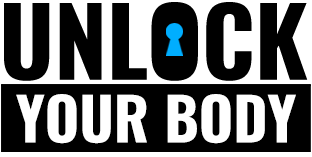In the hustle and bustle of our everyday lives, it’s easy to let our health take a backseat. However, the key to achieving lasting fitness and well-being lies in a transformative principle: personal accountability.
Embracing responsibility for our health journey empowers us to make conscious choices, prioritize self-care, and stay committed to our fitness goals. So let’s dive deeper into the power of personal accountability and discover practical tips to be “on point” in our fitness pursuits to unlock a path to a healthier, happier life.
Staying On Point & Committed To Your Goals

When it comes to personal and professional goals, fitness goals included, staying personally accountable to yourself is crucial. It’s easy to make promises to ourselves about hitting the gym regularly or eating healthier, but actually following through can be a challenge. That’s where personal accountability comes in.
Also known as self-accountability, personal accountability means taking personal ownership of our decisions and recognizing their impact on our overall well-being. Whether it’s progress tracking or realistic goal setting, self-accountability is the key to staying on track with our fitness goals.
Personal accountability means being honest with oneself, acknowledging mistakes, and learning from them to make better choices in the future. With this ability, we take responsibility for our own actions, decisions, and behaviors rather than avoid responsibility.
The key to achieving your fitness goals is to stay on point and committed. Staying on track and committed is not always easy. It’s easier to get derailed or lose motivation along the way but remember, the results will be worth it in the end if you persevere.
Keep going, stay focused, and watch yourself achieve those goals with these tips.
Tips & Strategies to Develop Personal Accountability

Personal accountability is an important trait that individuals need to develop to succeed in their personal life, including their professional life. A lack of personal accountability may sabotage your success in life. You may fail to take responsibility for the consequences of your actions and decisions, which can lead to setbacks and hinder overall progress and success.
You demonstrate personal accountability by taking full responsibility for your failures and proposing a plan to fix the situation and ensure success in the future. Instead of blaming others or making excuses, taking responsibility for your own failures allows for personal development.
Therefore, it’s vital for you to be held accountable for your actions and progress to achieve your desired outcomes in life.
Developing personal accountability can be challenging, but it’s possible to cultivate this quality with the right tips and strategies.
1. Remember Your Answer to the Huge WHY Question

To stay on point with your fitness goals, it is crucial to remember the answer to the question of why you even started in the first place. Keep that vision in mind and use it as fuel to keep pushing forward.
Picture this: you’re at the gym, sweat dripping, muscles burning, and motivation dwindling faster than you can say “burpee.” It’s precisely in these moments of doubt that you need a secret weapon to keep you going.
So, here’s the trick: never lose sight of why you embarked on this fitness journey in the first place! Whether it was to fit into those skinny jeans or simply to prove to yourself that you can do it, that initial spark of inspiration is your precious fuel. Let it ignite a fire within you, pushing you forward with unwavering determination.
Motivation can be fleeting, and relying solely on it to sustain our efforts toward our goals may lead to setbacks. Finding a deeper driving force within ourselves is essential to maintain consistency and progress.
When the initial enthusiasm diminishes, being present and taking responsibility becomes paramount. Cultivating discipline and commitment allows us to persevere even on days when we may not feel motivated to care about our objectives, such as losing weight or embracing healthier habits. Remember, your goals are like a captivating movie plot, and you’re the star in this blockbuster tale of fitness triumph!
2. Unbecoming the Master of Being Stuck

It’s easy to get stuck in your daily routines or present health status and become unconcerned. You eventually stop working towards your fitness goal and don’t feel accountable. But to develop personal accountability, you must learn to unlearn being stuck. By taking ownership of your actions and choices, you’ve broken free from the chains of complacency, self-doubt, and your comfort zone.
Being accountable by not becoming the master of being stuck has benefits.
One benefit is personal growth. When we challenge ourselves and step out of our comfort zones, we are forced to learn new skills and adapt to new situations. This helps us develop resilience and problem-solving abilities essential for personal and professional success.
Another is that it allows us to explore new opportunities and experiences, leading to a more fulfilling and enriched life. It opens doors to new relationships, hobbies, and passions that we may have never discovered otherwise.
Setting realistic goals is important to be able to prevent getting stuck or overcome it. Just get back on track today! With the right mindset, you’ll be able to focus your way toward your goals without getting stuck.
3. Sleep, Nutrition, Water, & Balance
One tip to develop personal accountability is establishing a daily routine through time management skills. You create a structure that promotes consistency and discipline by setting specific times for sleep, meals, exercise, and work. Use whatever tools or resources you have, such as alarms or scheduling apps, to remind yourself of the designated times for each activity for further reinforcement.
Monitor your progress and hold yourself accountable by setting achievable targets for sleep duration, daily water intake, nutrient-rich meals, and a balanced work-life schedule. This can be done through the use of journaling or tracking apps that allow you to record your activities and measure your adherence to your goals.
4. Utilize the Tools & Resources You Have

If you’re serious about owning your fitness journey, it’s time to unleash the power of the tools and resources at your disposal. Picture yourself as a superhero equipped with the most cutting-edge gadgets—except, in this case, exercise equipment and nifty fitness apps will lead you to victory!
Embrace the fantastic world of technology, where every rep, every step, and every calorie burned can be tracked with precision. These tools will help you stay focused and reveal your progress like a treasure map, guiding you toward your goals.
This includes identifying and using the skills, knowledge, and experiences that can contribute to your personal growth and development. By leveraging these tools, you can take personal ownership of your actions and become personally accountable for your choices and outcomes.
5. Celebrate Small Wins

Another effective strategy to develop personal accountability is to celebrate small wins along the way. Acknowledging and rejoicing about your progress, no matter how simple boosts motivation and reinforces positive habits.
Whether completing a week of consistent workouts or sticking to a healthy eating plan, each accomplishment deserves recognition. Take a moment to pat yourself on the back and relish the sense of achievement.
Additionally, share your wins with a supportive friend or family member who can cheer you on and hold you accountable. You can write down your accomplishments in a journal to help you visualize your experience and remind you how far you’ve come.
Remember, personal accountability is a lifelong skill, and celebrating small victories is an essential part of the process. So, raise a toast to your achievements, no matter how minor, and let the momentum of success propel you toward your greater aspirations.
6. Be Aware, Make Changes, Ask Help
In pursuing personal accountability, it’s crucial to remain aware of any obstacles hindering your progress. Don’t lose heart if you don’t see positive changes after a couple of weeks. Instead, assess the situation and be open to making necessary changes in your approach.
Don’t hesitate to seek help when needed. Utilize the resources at your disposal, such as apps and tools, to ask for guidance. Engage with experts in the industry who can provide valuable insights and solutions tailored to your challenges.
Finding support from like-minded individuals can be a game-changer. Join a Facebook fitness group or connect with an accountability partner who shares your goals. Through shared experiences, you can motivate each other, celebrate successes, and navigate setbacks together, creating a powerful sense of camaraderie and encouragement on your road toward personal accountability and growth.
7. Be Kind to Yourself

Developing personal accountability begins with showing kindness and compassion toward yourself. Recognize that the path to success may have its challenges, and it’s okay to experience weariness or a lack of motivation. Instead of dwelling on these feelings, focus on igniting your inner desire to achieve your goals, making your vision more significant than any temporary setback.
Practice self-encouragement and positive self-talk. Be your biggest cheerleader, offering words of affirmation and support during difficult moments. Additionally, embrace the concept of self-care. Prioritize your well-being, both physically and mentally. Allow yourself to rest when needed, and understand that self-compassion fuels your resilience to keep going.
Bring to mind that personal accountability isn’t about perfection but acknowledging your efforts and continuously striving for improvement. By treating yourself with kindness and nurturing your inner drive, you’ll cultivate the strength and determination needed to overcome challenges and achieve lasting success on your health and fitness journey.
Personal accountability requires a proactive approach and a willingness to take responsibility for one’s actions and decisions. Developing personal accountability is a continuous adventure that requires conscious effort and self-reflection. By using these strategies, you can cultivate this important ability and achieve success in all aspects of your life.
Personal Accountability: Important for a Healthier You
Mastering the art of personal accountability is a transformative journey that leads to becoming a better version of yourself. A new you that has control over your life and the power to influence the direction it takes. By being on point with your personal accountability, you embrace personal responsibility for your actions and choices, unlocking the potential for self-improvement.
No matter the size or complexity of your goals, personal accountability is the driving force behind your accomplishments. From small daily tasks to life-changing ambitions, staying true to your commitments and taking ownership of your progress launches you toward success.
So, set your sights on what you want to achieve, equipped with personal accountability as your ally. With determination and a sense of responsibility for your actions, there’s no limit to what you can accomplish on your path to a fulfilled and purpose-driven life.
Remember, being on point with your personal accountability is the key to unlocking the door to your full potential.







